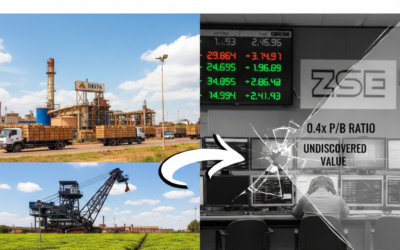Registration in Retrospective- Value Added Tax (VAT).
Retrospective VAT registration with the Zimbabwe Revenue Authority (ZIMRA) occurs when a business is required to register for VAT but fails to do so by the statutory deadline. ZIMRA may then enforce backdated registration, requiring the business to account for VAT on past transactions. This process can be complex and may involve penalties, but it can be managed strategically with proper guidance. Below is a detailed overview of how to handle retrospective VAT registration with ZIMRA:
1. When Retrospective Registration Applies
-
Triggered by Non-Compliance:
-
Your business exceeded the VAT registration threshold (currently $25,000 USD or ZiG equivalent per annum) but failed to register on time.
-
ZIMRA identifies unreported taxable supplies during an audit or investigation.
-
-
Voluntary Disclosure:
-
You proactively approach ZIMRA to correct past non-compliance (may reduce penalties).
-
-
2. Steps to Apply for Retrospective VAT Registration
a. Determine the Effective Registration Date
-
ZIMRA will assign a backdated registration date, often the date your business first met the VAT threshold.
-
Example: If you exceeded the threshold in January 2022 but only register in 2024, ZIMRA may require VAT calculations from January 2022 onward.
b. Prepare Required Documentation
Submit the following to ZIMRA:
-
VAT Registration Form (VAT 1): Clearly state the requested retrospective date.
-
Financial Records:
-
Sales invoices, purchase records, and bank statements for the retrospective period.
-
Evidence showing when the VAT threshold was exceeded (e.g., annual turnover calculations).
-
-
Explanation Letter: Justify the reason for late registration (e.g., ignorance of the law, accounting errors).
c. Work with ZIMRA
-
ZIMRA will review your application and may conduct an audit to verify:
-
The correct registration date.
-
Unpaid VAT liabilities for the retrospective period.
-
-
Cooperate fully and provide additional documents if requested.
3. Implications of Retrospective Registration
a. VAT Liabilities
-
Output Tax: You must declare and pay VAT on all taxable supplies made during the retrospective period.
-
Input Tax: You may claim VAT on qualifying purchases made during the same period (if suppliers were VAT-registered).
b. Penalties and Interest
-
Late Registration Penalty: Up to 100% of the unpaid VAT for the period (mitigated if you voluntarily disclose).
-
Interest: Charged on overdue amounts (currently 100% of the prescribed rate).
c. Administrative Burden
-
Amend past tax returns or submit late returns for the retrospective period.
-
Issue VAT invoices to customers for past transactions (may strain client relationships).
4. Mitigating Risks
-
Voluntary Disclosure:
-
Proactively disclose errors to ZIMRA under the Voluntary Disclosure Program (VDP) to negotiate reduced penalties.
-
-
Negotiate Payment Plans:
-
If liabilities are substantial, request installment payments to ease cash flow.
-
-
Professional Assistance:
-
Engage a tax consultant or lawyer to:
-
Calculate accurate VAT liabilities.
-
Advocate for a fair retrospective date.
-
Navigate disputes with ZIMRA.
-
-
5. Objections and Appeals
If you disagree with ZIMRA’s decision:
-
File an Objection: Submit a written objection within 30 days of the assessment, supported by evidence.
-
Appeal to Fiscal Court: If unresolved, escalate to the Fiscal Appeal Court within 3 months.
6. Proactive Compliance Post-Registration
-
Update Systems: Implement VAT-compliant accounting software (e.g., Pastel, QuickBooks).
-
Train Staff: Educate teams on VAT invoicing, record-keeping, and filing deadlines.
-
Regular Reviews: Conduct internal audits to avoid future non-compliance.
Key Takeaway
Retrospective VAT registration can result in significant financial and administrative strain. To minimize risks:
-
Act swiftly if you identify non-compliance.
-
Leverage voluntary disclosure to reduce penalties.
-
Partner with tax professionals to manage negotiations with ZIMRA.
Always maintain meticulous records and stay informed about VAT thresholds and regulations to avoid retrospective liabilities.
-



